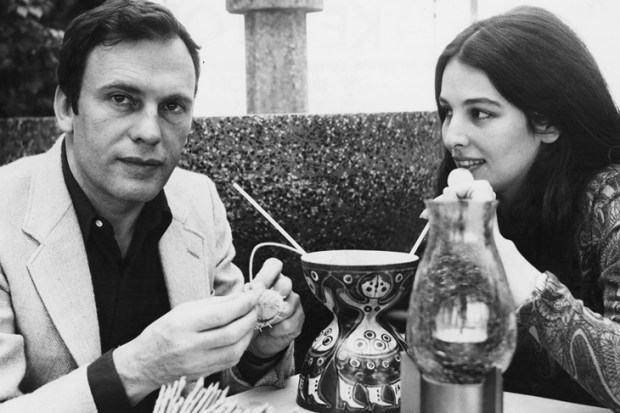When it comes to the Culture Wars in 2023, I have two simple resolutions:
- Assume they are sincere.
- Be sincere.
Recently I consumed as much of the speeches of Professor Stephen Kotkin as I could find for free online.
For those who are unfamiliar with his work, Stephen Kotkin is a historian who knows more about the Russian Revolution than most people know about their children. He is a fellow of the Hoover Institution, and you really need to listen to his insights – especially in light of the war unfolding in Ukraine.
One of his comments about the dictatorship of Joseph Stalin stands out strongly in my memory. He said that the communists in Stalin’s circle were sincere. They truly believed in communism. They loved and needed Stalin’s leadership because he was truly dedicated to the communist cause and worked tirelessly for it. He even tried to resign a few times but his cabinet wouldn’t let him.
There is a temptation when we don’t agree with someone, and lack the ability to put ourselves in their shoes, to instead assume that they are insincere in their beliefs.
‘They say it is about equality, but really it is all about power.’ ‘They say they want justice, but really they are trying to relieve feelings of guilt.’ ‘The communists didn’t really support Stalin, they were just afraid of him.’
We filter their actions through our worldview, rather than seeking to understand theirs.
Even though these positions may sometimes be true, assuming sincerity is the best workable way to interact with those we disagree with from opposing political viewpoints. If they are insincere, and perhaps they are, then that is their problem; but if we assume their insincerity, then we become the problem.
Just because you cannot personally sympathise with an ideology does not mean that someone else does not actually, genuinely, think the things they declare. Assuming insincerity is a dangerous fallacy, which I also have been guilty of. I’ve also been on the receiving end of this error from progressive-minded people who assumed that my conservative views must be motivated by fear or resentment. It is abominably frustrating! By all means, imagine my ideas to be delusional, but at least show me the courtesy of believing me properly deluded.
If you cannot empathise with what someone thinks, then perhaps you haven’t thought about their position enough. And you probably haven’t talked to them enough. If you do, you may find that their views have been reasoned from different facts, or even a different worldview that departs from yours at a deeper level than you have yet explored.
Why this caution now? Because when I heard it suggested that Victoria returned their Labor government due to ‘Stockholm Syndrome’, it didn’t reflect what I know of Labor voters and of many Victorians. No, the problem is both bigger and simpler… A large swathe of voters genuinely think that Dan Andrews is a force for good and that he is truly giving them what they want in a leader.
It increasingly feels like the Left hold the West’s political centre of gravity. Theirs is the viewpoint that is normalised by our culture. They enjoy a ‘home-ground advantage’ of sorts. The Left always argue from their principles, whereas everyone else has first to argue for their principles. If you say ‘all people should be treated equally’, everyone sagely nods their head, but if you say ‘people should be free to speak their minds’, their brows crinkle and they start muttering, ‘yes, well… no freedom is absolute…’
Though truly the change is oversimplified by the Left/Right political dichotomy. A total progressive package of views on the environment, sex, race, identity, religion, and economics bubble up together from an underlying worldview that goes beyond politics.
It’s interesting to speculate how and why so much of the population have become more communist than Marx… Some blame the many institutions that have themselves been occupied by the Left – media, education, and entertainment. The progressive package is pervasive and the latest generation of young adults – Generation Z – have been steeped in it since birth. Doubtless, this plays a role.
I personally consider a more relevant factor to be that Australia is two generations removed from anything approaching real hardship. The left-wing utopic vision of a cost and obstacle-free life has been true for most people, especially those dwelling in the metropolis. Why should they believe that it doesn’t work or can’t last?
Perhaps our having fewer children is also a factor? Perhaps it is not really wealth, responsibility at work, or accumulated wisdom that makes people more conservative when they get older, but rather that it is a side-effect of having children. Young families are little microcosms of a welfare state and a very practical lesson in supply-side economics!
Whatever the cause for the political distribution that we now enjoy, we ought to assume that it is sincere. That does not mean that we should assume it is irreversible. I doubt very much that the politics of Generation Z is unshakable or that it is all hopeless. Instead, I’m concerned that many are supportive of the Left because they’ve never seen the Right put up a fight. They’ve never seen it courageously championed.
Which brings me to my second point. Regardless of how hopeless or otherwise our society’s current predicament may be, there is only one palatable path forward for each of us:
Be sincere.
I didn’t watch much of Victoria’s election night, but I switched on long enough to see one unfortunate Liberal being hounded by, well, everyone else on the ABC’s panel. It was agonising to watch:
‘You’re raiding the future fund!’
‘No, we’re paying off debt.’
‘By raiding the future fund, yes?’
‘No, we’re not, we’re paying off debt.’
From the fear of a negative soundbite, the Liberal refused to say something basically true – that they were planning to raid the future fund.
No wonder they lost. How about fighting for a decision you truly believe in? How about saying, ‘Yes, we’re using the future fund, because a government in debt shouldn’t have a freaking future fund.’ How about saying, ‘Only a moron holds a high-interest debt in one hand, and a low-interest deposit in the other. Your viewers know this – people at home would at least set up an offset account for their home loan! It’s a good policy and I’ll defend it to the hilt!’
I can imagine why he didn’t say that. Various political consultants and thinkers had carefully decided how they should most advantageously characterise their policies. They looked at the statistics – raiding the future fund won’t poll well. The net effect of all this strategising? He couldn’t even back a basically good and very ‘Liberal’ policy on election night after the polls were closed!
There’s a big lie in the world of politics. I heard it stated explicitly by a senator last year. The lie is this: the main task of a political party is to win elections.
Actually, it isn’t. The main task of a party is to stand for what their members stand for. The main task of the Liberal Party, then, is to be the Liberal Party. With that in mind, winning an election is not about changing the soul of the party to become what the people want, but to convince those people to change what they want – to win the argument that your politics and philosophy is worth choosing. The job of the Liberal Party when campaigning is to convince the people that they ought to be Right-wing because it is the right thing to be.
Many on the political Right look with a sense of dread and depression at the Australian electorate, for all the reasons mentioned above. They despair over the seemingly intransigent Generation Z vote – will it ever sway to the right? Do we even have any means left to us to get through to these brainwashed fledglings? So they try to ‘connect’ to the younger generations, speaking to their beliefs and priorities and embarrassing themselves hopelessly in the process.
Instead, we need to quit our defeatist whining! I refuse to believe that Gen Z are so radically different. They’re just young, they’re not Martians! Whether it works of not, we need to see more courageous dissent. And it might work! It isn’t natural for the social centre of gravity to sit so far from the centrist position, and truth is inherently stronger than lies.
In any case, we cannot win by pretending to be what we are not. If we aren’t genuine, then we have lost before we start. If we aren’t genuine, then even if we win, we didn’t win, our façade won. What fighter fights for a hollow victory?
I’ve framed this so far in terms of politics, where I have been most frustrated, but it is true in any matters of difference of opinion. Any issues where truth is at stake.
I’m cautious to give a specific example, because I don’t want to be guilty of Monday morning quarterbacking, but too many times recently, I have watched truth being smothered to death by the comfy pillow of winsomeness. It comes with a persistent smile, and persistent evasive non-answers; it’s so polite, and it’s so understandable. We just want to choose what direction we illuminate the truth from – we want to pick the lighting and the backdrop so it looks sexy. We want to prevent our message from being misrepresented, or we want to avoid giving offence.
Well, that’s what we tell ourselves our reasons are. But sometimes we just don’t want to be disliked, or we lack faith in the truth of our own position, which is more devastating.
Don’t get me wrong. There is wisdom in winsomeness. Communication across barriers of difference ought to be strategic and even crafty, or you’ll be eaten alive. Sometimes withholding the truth is ‘not casting pearls before swine’, and sometimes deflecting a question is the more surely to argue the more pertinent point. But it must not come at the cost of honesty and sincerity.
The problem is when winsomeness goes from being the method to being the goal. The ultimate goal is to expose and defend something that is right and true. Sometimes the truth itself is confrontational. When the truth needs to make an impact, it will not thank you for cushioning its fall. When the truth needs to cut, it will not thank you for blunting its edge. Here the truth is trying to set people free, and you’re concerned about opening the prison doors quietly enough not to wake them!
Aleksandr Solzhenitsyn was a writer and a deep thinker, who was imprisoned in a Russian Gulag. He understood that there is more to being true than saying only things that are true. He wrote, ‘The simple step of the courageous individual is not to take part in the lie.’
Got something to add? Join the discussion and comment below.
Get 10 issues for just $10
Subscribe to The Spectator Australia today for the next 10 magazine issues, plus full online access, for just $10.


























Comments
Don't miss out
Join the conversation with other Spectator Australia readers. Subscribe to leave a comment.
SUBSCRIBEAlready a subscriber? Log in